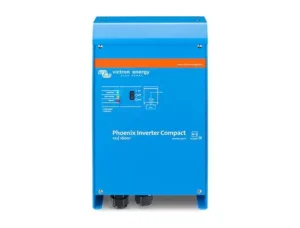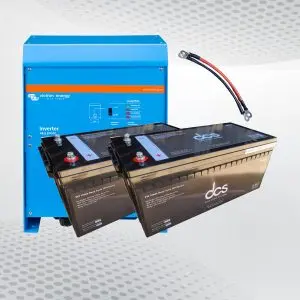With the growing adoption of renewable energy solutions, solar battery storage systems have become vital for homes looking to harness solar power efficiently. As energy prices rise and environmental concerns increase, more homeowners are considering residential storage systems to store surplus energy from their solar panels. These systems provide backup power during outages and help reduce electricity costs by allowing homeowners to use stored solar energy when utility rates are high. In this comprehensive guide, we’ll cover everything you need to know about solar battery storage for homes, including how it works, the benefits, the types of systems available, and how to choose the best option for your household.
What is Solar Battery Storage?
Solar battery storage is a technology that allows homeowners to store excess energy produced by their solar panels for later use. Instead of sending unused energy back to the grid, it is stored in batteries, which can power your home when solar production is low, such as at night or on cloudy days. Solar batteries play a crucial role in optimizing the use of solar energy, ensuring that homeowners can maximize their solar power production and reduce reliance on the grid.
How Does It Work?
When a residential solar battery storage system is installed, it is connected to your home’s solar panels. During the day, when your panels generate more electricity than your household consumes, the excess energy is stored in the battery. When your home’s energy consumption exceeds solar production, such as in the evening, the system draws power from the stored energy in the battery. This reduces the need to purchase electricity from the grid, potentially lowering energy bills and providing a reliable power source during outages.
Benefits of Residential Solar Battery Storage Systems
Solar storage systems offer numerous benefits, making them an increasingly popular choice for homeowners. Let’s explore some critical advantages of integrating residential solar battery storage systems into your home’s energy plan.
Energy Independence
One of the main reasons homeowners invest in solar battery storage is to achieve greater energy independence. You can reduce your reliance on the utility grid by storing excess solar power. This is especially beneficial during high electricity demand or power outages, as you’ll have a reliable backup power source.
Lower Energy Bills
By storing and using the energy generated by your solar panels, you can significantly reduce your electricity bills. Many utility companies charge higher rates during peak usage times (typically in the evening), and having a battery allows you to avoid these high costs by using your stored energy instead. This is especially true for households subject to time-of-use (TOU) pricing plans.
Backup Power During Outages
Solar battery storage units provide a vital backup power source in regions prone to power outages. If the grid goes down, your solar battery storage system can supply electricity to essential appliances and systems, such as refrigerators, medical devices, lights, and heating/cooling systems. This added security is essential for homes in areas affected by extreme weather events.
Maximizing Solar Panel Efficiency
Any excess energy produced by your panels is typically sent back to the grid without a solar battery. With a domestic solar battery storage system, you can store this energy for later use, ensuring that you’re maximising your solar panel investment. This leads to greater overall system efficiency and reduces the energy you need to purchase from the grid.
Environmental Impact
By reducing your reliance on grid electricity, particularly during peak times when energy generation is often less efficient and more carbon-intensive, household solar battery storage helps reduce your home’s carbon footprint. This makes solar battery storage an environmentally friendly option for homeowners looking to make their homes more sustainable.
Types of Domestic Solar Battery Storage Systems
When it comes to domestic solar battery storage, several different types of systems are available, each with its own advantages and use cases. Understanding these types will help you choose the best system for your needs.
Lithium-Ion Batteries for Solar Battery Storage Units
Lithium-ion batteries are the most popular type of residential solar battery storage units. Known for their high energy density and long lifespan, they are commonly used in solar storage systems due to their reliability and efficiency. Lithium-ion batteries can store a large amount of energy in a relatively small space, making them ideal for residential use. These batteries also have faster charging times and better depth of discharge (DoD), meaning they can be used more extensively without damaging the battery.
Lead-Acid Batteries
Lead-acid batteries have been used for decades in various applications, including solar storage systems. While cheaper than lithium-ion batteries, they typically have a shorter lifespan and lower energy density. Due to their affordability, lead-acid batteries are often used in off-grid solar systems, but they require regular maintenance and have a lower depth of discharge compared to lithium-ion batteries.
Saltwater Batteries
Saltwater batteries are a newer option in the solar battery market. Unlike lithium-ion and lead-acid batteries, they don’t contain heavy metals, making them more environmentally friendly. While they are not as widely available or tested as other battery types, they are gaining attention due to their sustainable design and the potential for future improvements in performance and cost.
Flow Batteries
Flow batteries are a newer technology ideal for large-scale energy storage. These batteries store energy in liquid electrolytes that flow between two tanks, allowing for longer energy storage durations. While not as common for residential use, flow batteries are gaining traction in the commercial and utility sectors. For large homes with significant energy needs, flow batteries could be an option to consider.
How to Choose the Right Household Solar Battery Storage System?
Choosing the right household solar battery storage system requires careful consideration of several factors, including your home’s energy needs, budget, and installation requirements. Below are key points to remember when selecting a system for your home.
Battery Capacity
The capacity of a solar battery is measured in kilowatt-hours (kWh), which determines how much energy the battery can store. To calculate the suitable capacity for your home, you’ll need to estimate how much power your household uses daily and how much solar energy you expect to generate. For example, a typical home might require a battery with a capacity of 5-10 kWh to provide sufficient backup power during the night or power outages.
Depth of Discharge (DoD)
The depth of discharge refers to the percentage of the battery’s capacity that can be used without negatively affecting its lifespan. Lithium-ion batteries typically have a DoD of 80% or higher, meaning you can use up to 80% of the battery’s stored energy before recharging. When comparing batteries, look for systems with a higher DoD, as this will allow you to use more of the battery’s capacity without shortening its lifespan.
Power Output
Power output is another critical factor to consider when choosing a solar battery. Measured in kilowatts (kW), the power output determines how many devices or appliances the battery can power simultaneously. If you’re looking for a battery to provide backup power during outages, ensure the system’s output is sufficient to meet your home’s energy needs. For example, a battery with an output of 3 kW may power a few essential devices. In comparison, a larger battery with an output of 7 kW could power more appliances or larger systems.
Lifespan and Warranty
Solar batteries degrade over time, so choosing a system with a long lifespan and a solid warranty is essential. Most lithium-ion batteries come with warranties of 10 years or more, guaranteeing a certain number of charge cycles before the battery’s capacity drops below a specified percentage. When comparing solar battery storage units, look for products with extended warranties and high cycle ratings to ensure a durable, long-lasting system.
Installation and Maintenance of Residential Solar Battery Storage System
The next step is installation once you’ve chosen the right residential solar battery storage system. Proper installation is crucial for ensuring the system operates efficiently and safely.
Installation Process
A certified professional should always install a domestic solar battery storage system. During the installation, the battery is typically connected to your home’s solar panel system and the main electrical panel. This setup allows the battery to store energy from the solar panels and distribute it to your home as needed. Depending on the complexity of your system, the installation process can take anywhere from a few hours to several days.
Location and Space Requirements
Most solar batteries are designed to be installed indoors, such as in a garage, basement, or utility room, though some models can also be installed outdoors in weatherproof enclosures. When planning for installation, ensure you have sufficient space for the battery and any associated equipment. Proper ventilation is also essential to prevent overheating and to ensure the system operates efficiently.
Maintenance
One of the advantages of modern solar battery storage units is that they require minimal maintenance. However, monitoring the system’s performance and ensuring it operates within the manufacturer’s specifications is still important. Most batteries come with monitoring apps that allow you to track your energy usage, battery health, and performance from your smartphone or computer. Regularly checking these indicators will help you catch any issues early and ensure your system operates efficiently for years.
The Future of Solar Battery Storage
As solar technology continues to evolve, so does the future of solar battery storage. With improvements in battery efficiency, capacity, and cost, solar storage systems are becoming more accessible to homeowners worldwide.
Advances in Battery Technology
Ongoing research in battery technology is leading to developing more efficient and cost-effective batteries. Solid-state batteries, for example, are a promising alternative to traditional lithium-ion batteries, offering higher energy density and improved safety. As these new technologies become commercially available, they will likely drive down the cost of solar battery storage units and improve the overall performance of residential systems.
Increased Grid Independence
As more homeowners install household solar storage systems, the potential for grid independence grows. We may see more homes operating as “mini-grids,” using solar and battery storage to power themselves and even sharing excess energy with neighbours or community energy grids. This decentralized approach to energy could lead to more stable and resilient power systems.
Conclusion
Residential solar battery storage systems are an intelligent investment for homeowners looking to maximize the benefits of their solar panels, reduce electricity bills, and gain energy independence. With technological advancements and an increasing focus on sustainability, solar battery storage is becoming integral to home energy systems worldwide. Whether you’re looking for a reliable backup power source or want to optimize your solar energy usage, a solar battery storage system can provide long-term value and peace of mind.
As you explore your options, consider factors like battery capacity, efficiency, and cost to choose the best system for your home. With proper installation and maintenance, a domestic solar battery storage system can provide you with clean, reliable energy for years to come.
FAQs
1. What is a solar battery storage system, and how does it work?
A solar battery storage system stores the excess energy generated by your solar panels during the day. Instead of sending surplus energy back to the grid, the system stores it in the battery for later use, such as during nighttime or cloudy days. This allows you to rely on solar power even when your panels aren’t actively generating electricity, providing a more consistent and independent energy supply.
2. How long can a solar battery storage system power my home?
The duration that a solar battery can power your home depends on the battery capacity (measured in kilowatt-hours, kWh), your home’s energy consumption, and how many devices or appliances you are using. For example, a typical 10-kWh battery might power essential appliances, like lights, a refrigerator, and a TV, for several hours. To maximize battery runtime, prioritize critical loads and energy-efficient devices during backup power situations.
3. Can I go completely off-grid with a solar battery storage system?
Yes, with a large enough solar panel array and battery storage system, it is possible to go completely off-grid. However, this requires careful planning and investment in high-capacity solar and storage systems to ensure you have enough energy during periods of low sunlight. It’s important to consider your energy consumption, the size of your battery bank, and local weather patterns to maintain sufficient energy reserves for off-grid living.
| Related Business Listings |
| Contact Directory |
| Local Business Profiles |




